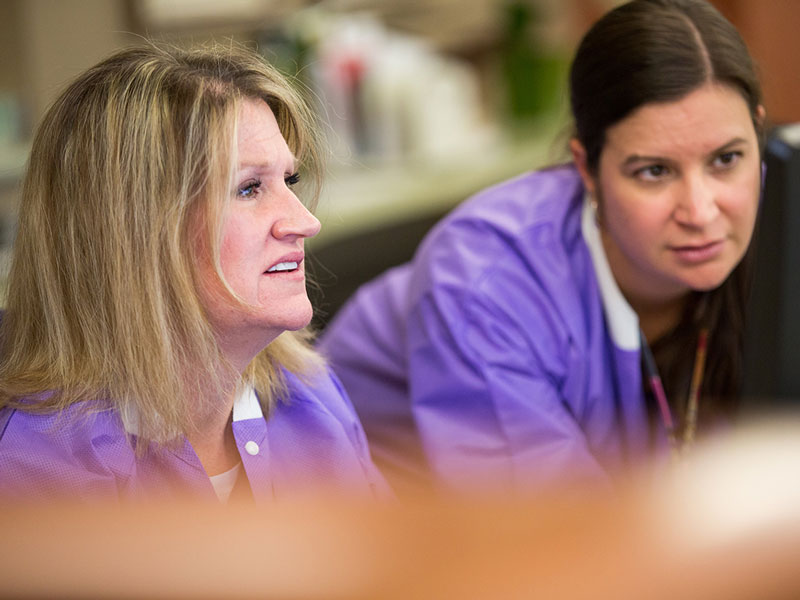FDA Grants Accelerated Approval to Pembrolizumab for Hepatocellular Carcinoma

On November 9, 2018, the U.S. Food and Drug Administration (FDA) granted accelerated approval to pembrolizumab (Keytruda) for patients with hepatocellular carcinoma who have been previously treated with sorafenib.
- Read more about FDA Grants Accelerated Approval to Pembrolizumab for Hepatocellular Carcinoma
- Add new comment
Psychosocial Support May Reduce Stigma for Patients With Lung Cancer
Because of the relationship between cigarette smoking and lung cancer, patients who receive a lung cancer diagnosis may feel judgment compared to patients with other cancer diagnoses, which could affect social interactions between family, caregivers, and healthcare professionals. Perceived lung cancer stigma can lead to depression, anxiety, poor self-esteem, guilt, shame, blame, poor social identity, and reduced social support. A recent study indicated that lung cancer stigma might be behind the low lung cancer screening rates among high-risk smokers.
An Oncology Nursing Overview of Biosimilars

Since the first biosimilar agent was approved by the U.S. Food and Drug Administration (FDA) in 2015, patients and providers have had concerns about the implications for their care and practice, respectively. Because 6 of the 12 biosimilar drugs currently approved in the United States have indications for oncology practice, oncology nurses have a responsibility to understand the drugs’ safety and efficacy for the patients in their care.
This Week, Recognize and Thank Your Oncology Nurse Practitioner Colleagues

Nurse practitioners (NPs) play an undeniably valuable role in producing quality outcomes in cancer patients. For National NP Week from November 11–17, 2018, pause with ONS to recognize, thank, and support the oncology NPs who relentlessly pursue excellence, striving for the best for their patients from diagnosis through survivorship.
- Read more about This Week, Recognize and Thank Your Oncology Nurse Practitioner Colleagues
- Add new comment
Educational Approach Improves Oncology Advanced Providers’ Knowledge and Experience With Immunotherapy
As more immunotherapies come to market, advanced practitioners need to know how to prescribe and recognize, triage, and manage immune-related adverse events (irAEs) as well as champion education about the agents’ benefits and risks.
- Read more about Educational Approach Improves Oncology Advanced Providers’ Knowledge and Experience With Immunotherapy
- Add new comment
Dems Take House; GOP Expands Senate; Science in Midterms

After an arduous campaign season, the midterm election results are mostly as anticipated. The Democrats gained seats in the House of Representatives, giving the party the majority in the lower chamber starting in January 2019. The Dems say their focus for the next congressional session will focus on health policy and high drug prices. Although the jury is still out over what the midterm elections meant, most experts agree that health care was the driving political issue for voters, regardless of party.
Supporting the Chapter Model Transition Remains Key Focus for ONS Board

During the ONS Board of Directors monthly meeting by conference call in September 2018, supporting ONS chapters through the model transition continued to top the agenda.
- Read more about Supporting the Chapter Model Transition Remains Key Focus for ONS Board
- Add new comment
Tailored Psychotherapy Combats Depression in Advanced Cancer

Just three to six sessions of a tailored psychotherapy program called CALM, or Managing Cancer and Living Meaningfully, reduced symptoms of depression or prevented the onset of depression in patients with recently diagnosed advanced cancer, according to findings from a study published in the Journal of Clinical Oncology.
ONS Tackles Oral Chemotherapy Complexities

To ensure that patients and providers are equipped with the latest, most up-to-date knowledge and resources, ONS routinely works with patient advocacy groups, subject matter experts, and other provider organizations to develop and refine critical information for clinical practice. Following safety standards and meeting patient education requirements are critical to successful oral chemotherapy practice.
How Oncology Nurses Provide Quality Care Through Telephone Triage

As a direct line to the oncology team, the phone conversations between nurses and their patients can help address symptoms, foster valuable patient education, provide useful interventions, encourage side effect reporting, and identify potentially life-threatening situations. Ultimately, successful telephone triage requires a unique skill set for oncology nurses to communicate with their patients and recognize underlying issues.





